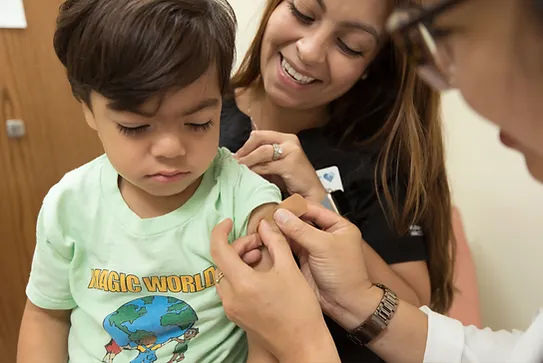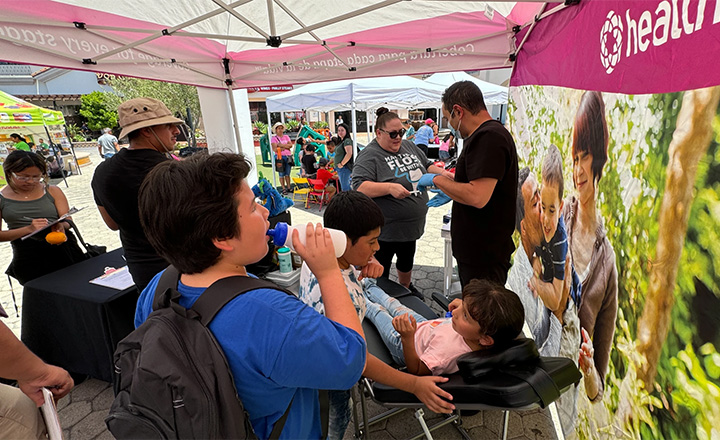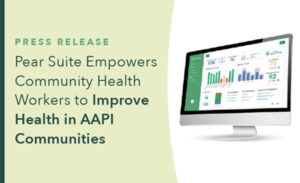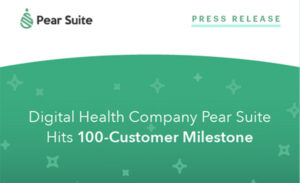Community health workers (CHWs) and organizations have been essential to Medicaid programs since 1981. At the time, home and community-based service (HCBS) waivers allowed states to choose how and whether to reimburse community providers for social services and care in non-traditional healthcare settings.
As of January 2026, community-based organizations (CBOs) in over 24 states can file for Medicaid reimbursement through state plans or other means. Since the 2024 guide, Connecticut has passed reimbursement legislation but hasn’t specified an implementation date. While Colorado was expected to join the list, their implementation date was postponed to January 1, 2028. There have also been updates to CHW certification requirements, documentation and reverification for Medicaid members, and billing formats, all of which impact CHWs, CBOs, and Medicaid members.
Every state has different processes and requirements for Medicaid reimbursement (and Medi-Cal reimbursement in California). So CHWs and CBOs must know their state’s reimbursement limitations and how to bill Medicaid for social work services.*
 What’s changed since the 2024 guide (quick overview)
What’s changed since the 2024 guide (quick overview)
Since our 2024 Medicaid reimbursement guide, several states have refined how community health worker services are documented, certified, and reimbursed. While the overall direction remains the same, these updates affect how CHWs and community-based organizations bill Medicaid and maintain compliance.
Key updates to be aware of:
- State authorization continues to expand. The total of states that allow some form of Medicaid reimbursement for CHW services through state plans, waivers, or managed care arrangements has remained consistent.
- Implementation timelines have shifted. Some states, including Colorado, delayed previously anticipated CHW reimbursement start dates, while others passed legislation without finalized operational guidance.
- Certification and supervision requirements have evolved. Several states have updated CHW certification standards. New Medicaid requirements will require CHWs and CBOs to conduct more frequent verifications, which can make reimbursement more difficult.
- Billing and documentation standards are more specific. States are increasingly clarifying required service notes, time increments, eligible CPT codes, and unit limits.
- Administrative oversight is increasing. Enhanced eligibility checks and documentation expectations mean accurate, timely recordkeeping is more important than ever.
This guide reflects the most current information available as of January 2026. Because Medicaid policies continue to change at the state level, organizations should always confirm requirements with their state Medicaid agency.
Medicaid reimbursement and social services that qualify
States that allow Medicaid reimbursement for CHWs typically qualify care services in six areas:
- Care coordination
- Systems navigation
- Health coaching and education
- Patient advocacy
- Clinical support
- Community outreach
Care coordination
Care coordination includes the organization of a client or Medicaid member’s care across health providers. Each state defines its own scope of care coordination.
Here’s what that looks like in different states
In Kansas, the scope of services for CHWs includes connecting people to appropriate information and services.
In Michigan, care coordination services include helping patients make appointments, routine preventative care, self-managed care of chronic illness, using telehealth technology, and arranging transportation to Medicaid-covered appointments.
In states like Indiana, care coordination or case management still don’t qualify, even though there is a pathway for CHW services reimbursement through Medicaid. And many states don’t cover transportation assistance.
Systems navigation
Systems navigation refers to support that connects community members to information and services within complex healthcare systems to help them address or overcome social drivers of health. Again, without standard definitions, classifications for systems navigation services vary by state.
Here’s what that looks like in different states
In Kentucky, for example, CHWs can bill Medicaid for systems navigation services where cultural mediation is necessary because of language barriers, social or economic status, or health literacy. In these cases, CHWs are liaisons between Medicaid members and providers to support the overall understanding of treatment options and plans.
Health education
Health coaching and education include helping patients gain the knowledge and tools they need to reach their health goals individually or in groups.
While the topics of education materials eligible for reimbursement through Medicaid vary, most states agree that the care setting can be traditional (e.g., community health center or pregnancy clinic) and non-traditional (e.g., barber shops or churches). Regardless of the setting, education that qualifies for Medicaid reimbursement must be consistent with recognized healthcare standards.
Here’s what that looks like in different states
Arizona allows CHWs to bill Medicaid for diabetes, parenting, and blood pressure education to train Medicaid members in proven methods of avoiding or lessening the effects of these conditions.
Michigan’s health education topics span injury prevention, family violence, chronic pain, family planning, oral disease prevention, physical fitness and nutrition, and mental health. Education that qualifies for Medicaid reimbursement must be consistent with recognized healthcare standards.
Patient advocacy
Patient advocacy involves recognizing and addressing gaps in individual or community health needs.
Here’s what that looks like in different states
For example, in New York, advocacy includes helping patients and Medicaid members access high-quality, respectful, and equitable care. This might include helping a community member navigate language or cultural barriers that have historically led to mistrust between the client and the health care system, or team and community partners.
However, reimbursement for advocacy activities doesn’t apply to activities that aren’t directly related to a patient’s health, such as language interpretation. According to the eMedNY New York State Medicaid Provider Policy Manual, these services should be provided by a licensed third-party interpreter.
Clinical support
Clinical support covers a range of services that aim to optimize health outcomes and facilitate access to healthcare. Services include those that happen in and out of traditional clinical healthcare settings, such as farmers’ markets or nursing homes.
Here’s what that looks like in different states
For example, New Mexico reimburses for health screenings and home visits, arranging transportation, translating and interpreting health information, and promoting treatment follow-ups.
Community outreach
Community outreach typically covers services rendered in public or private settings to increase knowledge of public health issues and how to mitigate or address them.

Here’s what that looks like in different states
For example, the scope of services for Medicaid reimbursement in Massachusetts and other states includes outreach activities in homes, schools, hospitals, clinics, shelters, local businesses, and community centers.
Preventive care, violence prevention, and other services
CHWs may also bill Medicaid for preventive care for chronic conditions and infectious diseases, as well as non-licensed screenings or assessments.
Community-based organizations may provide vision and dental screenings with the help of a licensed provider. CHWs who aren’t licensed typically screen patients and Medicaid members for social drivers of health, such as access to safe housing, transportation, or healthy foods.
In a non-licensed screening, the CHW doesn’t need a license to provide and bill for services (or is a “non-licensed provider”).
Several state Medicaid programs also cover injury and violence prevention services in education (e.g., providing handouts about domestic violence), support (e.g., arranging emergency placement at a safe shelter), and advocacy (e.g., testifying on behalf of a parent seeking custody).
Coverage for this type of service is ever-expanding. For example, New York’s FY23-24 budget included coverage of non-clinical services related to violence intervention programs.
Medicaid reimbursement limitations and social services that don’t qualify
Even with all the allowances states offer for Medicaid reimbursement to CHWs, many also have limitations, or services and activities they don’t cover or reimburse. Some common limitations include:
- Travel time and transportation
- Interpreter services
- Nursing-level services
- Childcare
- Companion services
- Employment services
Regardless, it’s essential to look up the limitations in your state — because, as they say, if you’ve seen one Medicaid plan, you’ve seen one Medicaid plan. The practices and policies aren’t standardized across the country, or even within regions.
Here’s what that looks like in different states
For example, New Mexico’s CHW scope of work includes transportation, translation, and interpretation services. But Indiana excludes care coordination in its entirety, and arranging or providing transportation to and from appointments from covered services.
These limitations don’t prevent or prohibit CHWs from performing or offering these services, only that they can’t bill their state’s Medicaid program for them.
And while the availability of transportation and childcare impacts a person’s health, they may not qualify for reimbursement on several grounds. For instance, these services might only be available from licensed providers or may not be directly related to a Medicaid member’s health concern or social need.
Medicaid reimbursement and covered service unit limitations
CHWs can only bill Medicaid for limited services, depending on the state. Each state also determines the number of units Medicaid will reimburse for covered services. Most commonly, state Medicaid programs limit billable service units (measured in 30-minute increments) per member, day, or calendar month.
Here’s what that looks like in different states
For example, in Arizona, CHWs can bill up to four units per day and up to 24 units per month, per member. Meanwhile, in Indiana, CHWs can only bill Medicaid for up to four units (or two hours) per day per member. And they can only bill up to 24 units (or 12 hours) per month per member.
In Kentucky, CHWs can bill up to two units per member per week and no more than 104 units per calendar year. Those are just a few examples. Every state is different, and many give allowances for billing additional medically necessary services.
What CHWs need to bill Medicaid and get reimbursed for social services
Unfortunately, Medicaid reimbursement for CHWs and social services won’t be as easy as simply sending an invoice. Similar to eligible service limitations, each state has its own requirements for billing Medicaid. There are some common steps you’ll need to take to start the process of billing Medicaid for CHW work.
1. Documentation of Medicaid member and CHW eligibility
As much as CHWs want to serve every person in their community, in many states, billable services are only eligible for reimbursement for a state’s Medicaid members in targeted populations that align with the state’s welfare goals.

Other states consider all Medicaid members eligible for reimbursable services. States that limit member eligibility typically target conditions around pregnancy and postpartum, behavioral health, oral health, HIV, and access to housing.
Here’s what that looks like in different states
For example, in Arizona, CHWs can only bill Medicaid for services rendered to members with a chronic condition, who are at risk for a chronic condition, or who have a barrier directly affecting their health. In Georgia, CHWs can only bill Medicaid for postpartum services performed on women who give birth to babies weighing less than 3 pounds, 5 ounces.
In addition to documentation for eligible members, you’ll also need records of your CHW’s certification or the certification of the individual providing the services through your organization. Your certification or employment by another state-registered provider determines your provider reimbursement eligibility.
Arizona’s Medicaid office, the Arizona Healthcare Cost Containment System (AHCCCS), will only reimburse services for eligible members and certified CHW providers. A certified CHW is an individual who meets the qualifications to practice as a certified CHW in the state.
From there, a certified CHW must be employed under the supervision of one of 12 AHCCCS-registered provider types. As of February 2024, community health organizations in Arizona can register as AHCCCS providers.
CHWs in Kansas must meet similar criteria, while certified CHWs in Massachusetts must demonstrate between 2,000 and 4,000 hours of experience over 10 years. And a 2019 study in Louisiana led the state to forgo certification requirements in favor of allowing organizations to standardize their own CHW core competency training.
Meanwhile, some states, including Rhode Island, have updated CHW eligibility and certification requirements, including CHW certification and the need for explicit authorization from licensed practitioners before services are billable.
2. Claim forms or access to provider portals
Once CHWs are certified through their state agencies, they’ll need access to their state’s provider portal to submit claims. Once you can access the portal, you can submit claims, submit referrals and authorization requests, check on the status of a claim, and more.
Thanks to the Administrative Simplification Compliance Act (ASCA), healthcare organizations can (and must) bill Medicaid electronically. But there are exceptions. Institutions with fewer than 25 full-time employees and medical groups with fewer than 10 full-time employees must submit CMS-1500 claim forms.
3. CPT codes and rates
Whether you’re submitting claims electronically or following instructions for CMS forms, you’ll need to have your state’s current procedural terminology (CPT) codes (or billing codes) and rates. CPT codes offer a universal language within healthcare and related settings for recording and identifying procedures.
These five-digit codes specify the type of care a CHW performs and indicate 30 minutes of services provided and the number of patients served. 12 states allow CHWs to bill Medicaid on a fee-for-service (FFS) basis. Every state assigns a different rate to CPT codes, paying $2.79 to $35 per patient per half hour (or unit).
How to bill Medicaid for community health and social services
1. Gather documentation for services performed per member
As before, each state that reimburses CHWs for services has different standards and recommendations. But as a rule of thumb, keep documents and certifications organized and updated for each member you work with.
Documents and certifications might include:
- State certifications for CHWs who perform services
- State registrations for your organization
- Your organization’s National Provider Identifier (NPI)
- The date of services performed for each member
- Start and end times for each service
- The number of patients present (for group services)
- A summary of the session’s content, or the member’s education or treatment plan
- A service order specifying the number of units ordered, signed by an authorized provider
- CPT codes and rates
With recent federal policy changes, including the One Big Beautiful Bill Act, documentation becomes even more important as enhanced paperwork requirements and more frequent verification are implemented.
2. Sign in to your state’s provider portal or submit a CMS-1500 form per member
Thanks to the Administrative Simplification Compliance Act (ASCA), CHWs can bill Medicaid electronically. Sign in to your state’s Medicaid provider portal to submit documentation and claims, check on the status of a claim, and more.
3. Establish a relationship with your state’s Medicaid office
With so many Medicaid reimbursement requirements per state, questions are bound to come up. Many states have dedicated CHW program directors.
Establish a rapport with your state’s Medicaid department to learn more about state-specific policies and troubleshooting reimbursement policies.
Digitize and simplify Medicaid billing and reimbursement for social services
Medicaid expansions have been significant in getting community members access to essential services. But, as a result, community health workers take on significant administrative burdens, like attracting and retaining talent despite low and inconsistent reimbursement rates and the need to bill Medicaid in strict increments.

Care navigation and Medicaid billing software like Pear Suite can reduce the administrative burden by digitizing and simplifying the Medicaid billing and reimbursement process. Pear Suite gives CHWs a single hub to capture and document all services for each Medicaid beneficiary.
A digital hub makes it easier for CHWs to submit claims quickly and get reimbursed faster. Plus, it improves communication between CHWs, supports better project and progress tracking, and drives better social and financial outcomes.
*Information provided is not a replacement for certified legal, tax, billing, or accounting advice. Please consult your state’s Medicaid or healthcare authority for the most accurate and up-to-date information.




